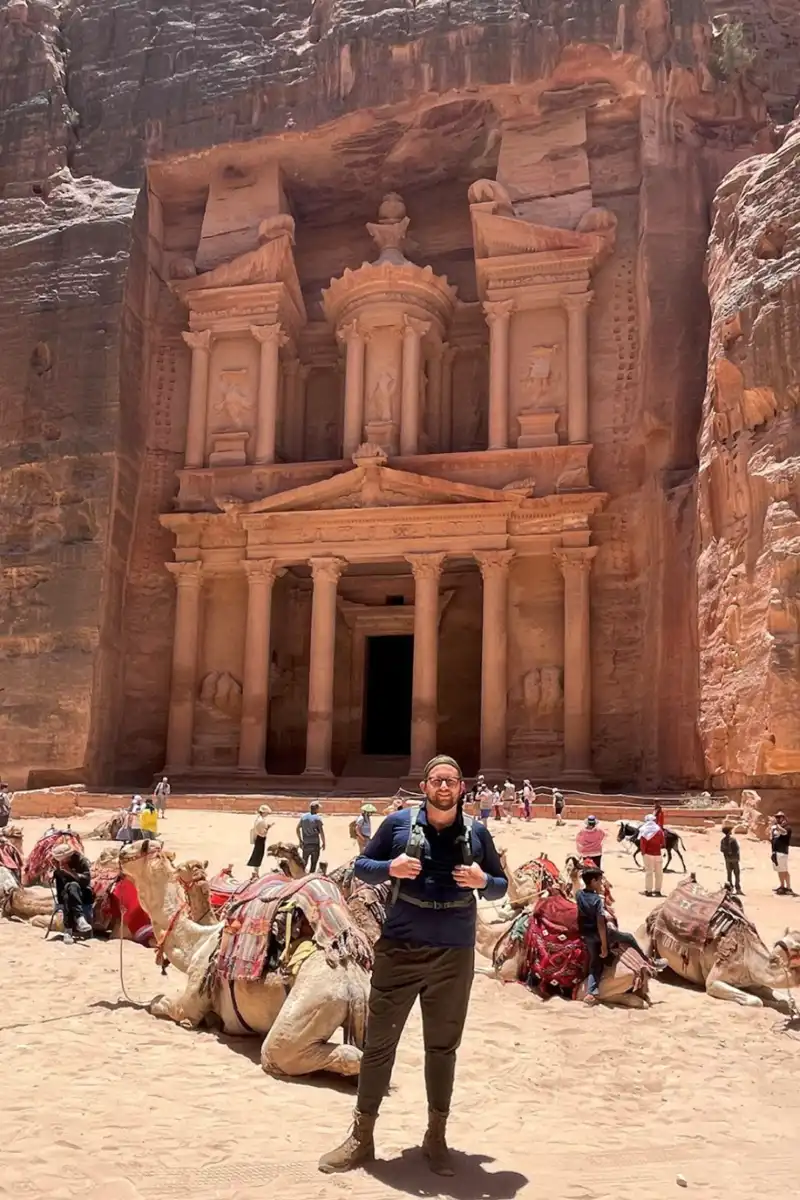Jordan Brasher

Jordan Brasher
Senior Instructor, Esri
Prior to entering the PhD program in Geography at the University of Tennessee, I completed a B.S. in Geosciences from Middle Tennessee State University (2014) and an M.S. in Geography from Oklahoma State University (2016). I decided to pursue a PhD in Geography because I loved learning about people, places, and culture, and had an insatiable curiosity to understand the world around me and that which was beyond what I could see or understand. Studying geography gave me the space to explore these interests and a toolkit for answering the questions I had.
I came to Knoxville to study with Dr. Derek Alderman, who has been an incredible mentor, colleague, and friend to me since I began working with him in 2016. Dr. Alderman showed me that it was possible to be from and retain one’s Southern identity as a cis white man and also speak truth to power, share power to support marginalized people, and fight for social justice inside and outside the academy. His way of being, his teaching, his writing, his fiery passion and sense of humor, made me want to teach and write about the world.
During my time in Knoxville, I had the opportunity to study the local, regional, and global trends in commemorating slavery and the American Confederacy, especially the politics of commemorating the migration of several thousand Confederate settlers after the Civil War to Brazil. The results of this work have been featured in news outlets such as The Washington Post and The Conversation, received $60,000+ in funding from the U.S. Department of Defense and other agencies, earned the Best PhD Student Paper at SEDAAG, and the Best Paper Award in the Journal of Heritage Tourism.
I am most proud, though, that I had the opportunity to communicate the results of my work to the Santa Bárbara d’Oeste (city in São Paulo, Brazil) city council, who in June 2022 nearly unanimously passed a measure to ban the use of racist symbols at public festivals, with the Festa Confederada as its target.
After graduating from Tennessee in the early days of the covid pandemic in spring 2020, I took a position as Assistant Professor of Geography on the tenure track at Columbus State University in Columbus, Georgia. I spent two years in the position teaching human geography and GIS before deciding to take my teaching and GIS experience to the private sector and join the Minneapolis regional office of Environmental Systems Research Institute (Esri), where I work now teaching software-focused courses to Esri’s clients across the country in both online and in-person training environments. I hope my story shows geography students the wide variety of academic and professional opportunities for which broadly trained geographers are prepared as people with diverse skillsets, intensely interdisciplinary training across STEM, the humanities, and social sciences, and a distinctly spatial perspective on the world.
PHOTO: Jordan in front of the Treasury in Petra, Jordan, one of the seven wonders of the ancient world, in July 2022. Jordan had just completed a professional development program in nearby Palestine for university professors and extended their travels into their namesake country while in the area.
